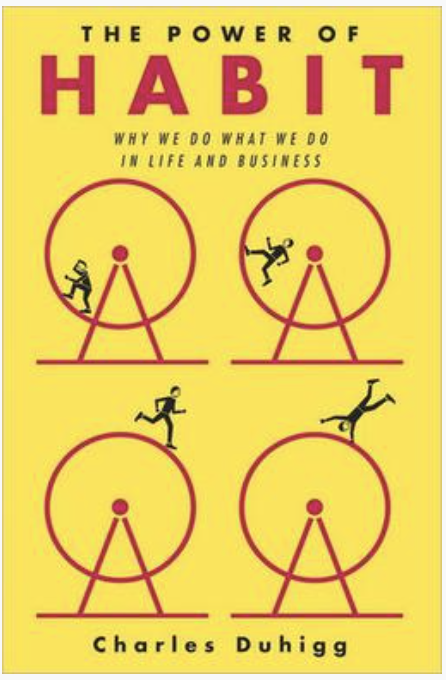
Introduction to The Power Of Habit
The Power of Habit: Why We Do What We Do in Life and Business is a book by Charles Duhigg, a New York Times reporter, published in February 2012 by Random House. It explores the science behind habit creation and reformation.
Duhigg read hundreds of scientific papers and interviewed many of the scientists who wrote them. He relayed interesting findings on habit formation and change from the fields of social psychology, clinical psychology and neuroscience. He did not write a self-help book conveying his own homespun remedies. Instead, he took a serious look at the science of habit formation and change.
The book reached the best seller list for The New York Times, Amazon.com, and USA Today.
Disclosure: This blog contains affiliate links. If you chose to buy a product through this link, I receive a small commission from the sale, at no extra cost to you.
Key Take Aways from The Power Of Habit
Duhigg teaches us the principles behind habit formation both on a personal level as well as on business and societal levels. He tells us a mix of engaging stories and case histories that illustrate the main ideas he wishes us to understand:
- Habits and Habit Loops-consisting of a cue, a routine and a reward (or a craving for one), controlled in the older basal ganglia part of our brains. “Chunking” – the brain’s process of converting a sequence of actions into an automatic routine
- The Golden Rule of Habit Change– to change a habit, keep the same cues and rewards, but alter the routine. Replacing the routine is not effective on its own when stressful situations arise in people’s lives. Then, belief in a higher power is the key addition.
- Keystone Habits– adoption of a single key habit that can create “small wins” which help other beneficial habits flourish. They can even operate on a business or societal level to create a culture where change is contagious.
- How willpower becomes a habit – by choosing a certain behavior ahead of time and following a planned routine when a stressful inflection point arrives
- Autonomy– Much of willpower comes from the feeling that you are in control of your life.
- How organizations and businesses can develop maladaptive organizational habits to form truces among conflicting factions, and how those behaviors can create potential disaster or harm. The unfortunate crisis that develops becomes the motivation for change.
- How various businesses can exploit the habits of their customers through marketing manipulations.
- Societal movements can develop by the occurrence of three things: Strong ties – friendships between individuals – start the movement. Weak ties – casual relationships that cause social pressure – grow it. Habits are created that give participants a new sense of identity – which helps the movement endure.
- Contrasting the difference between an addictive habit like gambling and an involuntary neurological disorder like sleep terrors. Duhigg’s point is that an addiction is a malleable habit, and once you understand that habits can change, you have the freedom and the responsibility to change them.
Conclusions
It is not always clear from Duhigg’s book how we should boil down his many examples into a prescription for change, because he combines different behaviors, at the individual and societal levels, into the rubric of habits.
Habitual behaviors come in many different forms. Squeezing them into one framework misses some of the nuances of how to change behavior. In recent years social psychologists have developed many effective interventions to help people improve their lives. Yet only some of them involve breaking bad habits in the way Duhigg describes.
Nonetheless, “The Power of Habit” is an informative and enjoyable book. Readers will find useful advice about how to change at least some of their bad habits. If you would like to buy this book, CLICK HERE. Other reviews I have read make reference to the book Atomic Habits by James Clear. Many favor the useful advice about changing habits in Clear’s work.
If you want to leverage your habit for learning into developing a work from home online business or even just a better balance in your life, I would encourage you to look into the educational programs of the Entre Institute.
